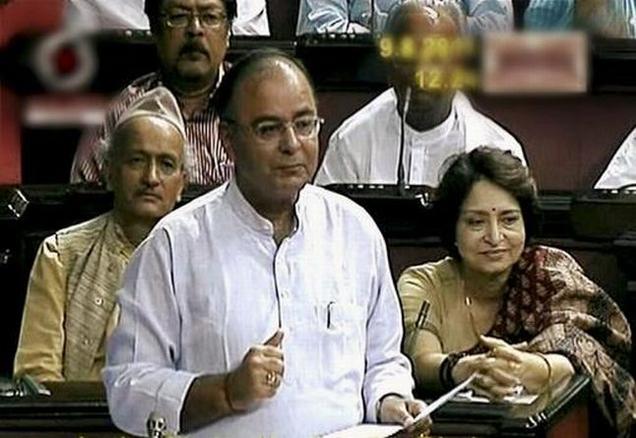
New Delhi, April 27: Leader of Opposition in the Rajya Sabha Arun Jaitley on Thursday said that the fact that culprits could not be brought to book in the Bofors gun deal was a serious reflection on the health of the investigating agencies.
“Somebody swung the deal, somebody got kickbacks. Money was traced, accounts were traced, you don't need further evidence and the man was allowed to leave the country. How was the man [Italian businessman Ottavio Quattrocchi] so powerful that the Indian State looks helpless?” he said.
‘Pakistan better'
In his Zero Hour intervention following two adjournments during the Question Hour, Mr. Jaitley questioned the helplessness of the investigating agencies and said: “See what is happening in our neighbouring country [Pakistan] in pursuit of truth and how helpless we look.”
He emphasised that middlemen must be eliminated and probity ensured in public life.
Communist Party of India (Marxist) leader Sitaram Yechury said the Bofors issue that had “plagued” the country for 25 years was a “serious matter.” “If there is anything new, it must be investigated and government must make it public,” he said.
As several leader members sought permission to intervene, presiding officer P.J. Kurien disallowed them saying it was not a debate.
Samajwadi Party leader Mohan Singh said this was an important matter and the economic offender must be extradited and punished.
As Mani Shankar Aiyar rose to speak on behalf of the Treasury Benches, Opposition members questioned why he was being allowed when only leaders of parties in the House had been permitted to raise the matter. Naresh Agrawal (SP) said this amounted to partiality and demanded that everybody be given the opportunity to speak.
Noting that Mr. Jaitley had bemoaned the fact that unsuccessful efforts were being made to unearth the truth, Mr. Aiyar said: “We could not unearth the truth because of distortions and historic inaccuracies.”
Mr. Aiyar pointed out that no progress was made in the case from December 1989 to November 1990 (during V.P. Singh government as well as the National Democratic Alliance rule later). Mr. Jaitley intervened to counter this.
Though Mr. Jaitley had not named anyone, Mr. Aiyar said he had made serious allegations that needed to be replied to. On being asked by Bharatiya Janata Party members to name the individual, Mr. Aiyar said he had no problem in saying that Bofors incident took place during the period when Rajiv Gandhi was the Prime Minister.
This was followed by heated exchanges between the treasury and Opposition members, including the All India Anna Dravida Munnetra Kazhagam.
Nothing could be heard in the din and after several minutes of persuading Mr Aiyar to stay brief in his observations, Mr. Kurien adjourned the House.





Comments
Add new comment